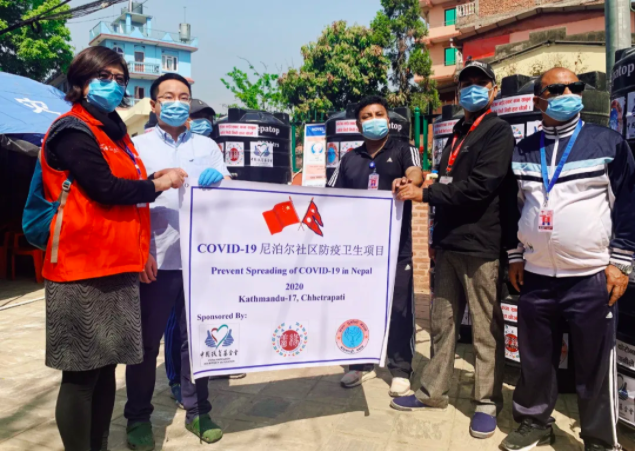On the same day that Wuhan’s lockdown was officially lifted, the capital of Nepal, Kathmandu, entered its 16th day of closure. As this landlocked country attempts to deal with COVID-19, two Chinese charities are now lending a helping hand.

On March 25, the UN Secretary General Antonio Guterres called on international NGOs to join the UN agencies and participate in a coordinated global humanitarian response plan to fight COVID-19 in some of the world’s most vulnerable countries. Two aspects of the response plan are the installation of hand-washing stations in refugee camps and settlements, and the launching of public information campaigns on how to protect yourself and others from the virus. On March 28, the third day after the UN’s call, the China Foundation for Poverty Alleviation and the Tibet Shanyuan Foundation launched a joint operation to build hand-washing stations across Nepal.
With the support of the local government, the two foundations created 105 “convenience hand-washing stations” in Nepal within two weeks. 45 of these are located in Nepal’s Province No. 2 (in the Southeast), and 60 are in and around the Kathmandu Valley. Posters have also been hung up on the walls of local communities, explaining how people can protect themselves and others from infection.
The hand-washing stations were immediately welcomed by local communities after they were put into operation, but how to get local people to respect social distancing and take good protective measures is an ongoing problem that the Chinese foundations and their local partners are still working on. In addition, they have had to find solutions for problems such as preventing Nepal’s roaming cattle from drinking the water, bargaining with the limited local salespeople still operating during the lockdown, and dealing with cash getting stuck in the ageing local ATM machines.
Edited by Gabriel Corsetti



